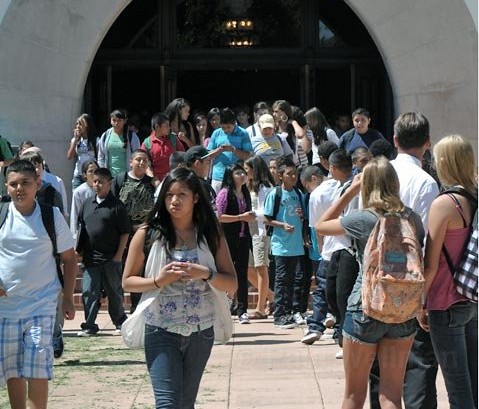School Board Begins to Craft New Parcel Taxes
Will Likely Ask For Less

No members of the Santa Barbara Education Foundation — which ran the campaign for the Measure W and X parcel taxes — said out loud that the school board is full of political dilettantes, but they were clearly dismayed by the direction the discussion took at a special meeting on Wednesday morning to hash out language for new parcel tax measure to be put on November’s general election ballot.
At the meeting, the board explained why their neighbors and church buddies didn’t vote for the taxes instead of paying attention to data, worried about appeasing opposition that the foundation feels is unappeasable, and — most significantly — agreed to lower the amount of the taxes to about $45 each. The measures, which failed to elicit the two-thirds majority needed to pass by merely 100 (W) and 700 (X) votes a few weeks ago, asked for $54 each.
After the meeting, foundation member Todd Capps said, “From a political campaign point of view, changing the price will have zero measurable impact.” As Brian Robinson — both a foundation member and a political consultant — explained to the board, voters do not focus on the price of a tax in a vacuum. They focus on whether that amount is correctly aligned with the need it is meant to address.
From a practical point of view, if the board does change the fee, it will complicate the campaign which would have to tinker with its message to explain said change. Capps went so far as to say lowering the tax cheapens the measure.
Trustees Monique Limon and Annette Cordero agreed with leaving the taxes at their current rates but, for the sake of unanimity, were not prepared to fight. Kate Parker and Susan Deacon favored lowering the combined amount to below what they feel is the psychological barrier of $100 and thereby eliminate class size reductions from the taxes’ mandate. Parker also suggested that the fact that the elementary and secondary taxes were the same amount looked capricious and suggested they be slightly staggered at $45 for the former and $43 the latter.
Robinson dismissed their psychological evaluations, explaining that those who had both taxes on their ballot supported them more strongly than those who only had to vote for or against one. He also pointed out, when critiquing Deacon’s proposed language for the ballot, that he had consulted on over $1 billion in tax measures, taking a not-so-subtle dig at the board’s desire to revise the initiatives.
Democrats, who tend to favor the parcel taxes, were outnumbered by Republicans in the primary election, but they are expected to outpace Republicans by two-to-one in the general election. Whereas Susan Deacon said, “I do not want to be dismissive of those people who didn’t vote” for the measures, foundation members said you don’t win an election by trying to please the minority. You do it by turning out the majority.
Everybody agreed that the school district could do more to help that effort by sending out informational mailers and by having employees advocate when they are off the clock. “Our principals are rarin’ to go,” said Superintendent Dave Cash.
To make the deadline for the November ballot, the board will have to finalize and vote on the two new measures at their next meeting, Tuesday.



